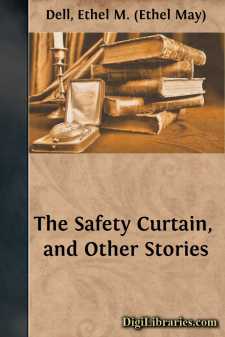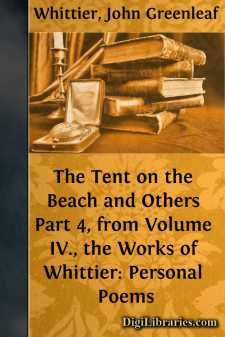Fiction
- Action & Adventure 180
- Biographical 15
- Christian 59
- Classics 6965
- Coming of Age 5
- Contemporary Women 3
- Erotica 8
- Espionage/Intrigue 12
- Fairy Tales, Folklore & Mythology 236
- Family Life 169
- Fantasy 117
- Gay 1
- General 596
- Ghost 32
- Historical 808
- Horror 43
- Humorous 160
- Jewish 25
- Legal 4
- Medical 22
- Mystery & Detective 315
- Political 49
- Psychological 41
- Religious 64
- Romance 159
- Sagas 11
- Science Fiction 730
- Sea Stories 113
- Short Stories (single author) 537
- Sports 10
- Suspense 1
- Technological 8
- Thrillers 2
- Urban Life 31
- Visionary & Metaphysical 1
- War & Military 173
- Westerns 199
Fiction Books
Sort by:
CHAPTER I. I was on the point of leaving India and returning to England when he sent for me. At least, to be accurate—and I am always accurate—I was not quite on the point, but nearly, for I was going to start by the mail on the following day. I had been up to Government House to take my leave a few days before, but Sir John had been too ill to see me, or at least he had said he was. And now he was...
more...
CHAPTER I THE ESCAPE A great shout of applause went through the crowded hall as the Dragon-Fly Dance came to an end, and the Dragon-Fly, with quivering, iridescent wings, flashed away. It was the third encore. The dance was a marvellous one, a piece of dazzling intricacy, of swift and unexpected subtleties, of almost superhuman grace. It must have proved utterly exhausting to any ordinary being; but to...
more...
I. "JUST BEFORE THE BATTLE, MOTHER." No one would have believed in the first years of the twentieth century that men and modistes on this planet were being watched by intelligences greater than woman's and yet as ambitious as her own. With infinite complacency maids and matrons went to and fro over London, serene in the assurance of their empire over man. It is possible that the mysticetus...
more...
THE TENT ON THE BEACH It can scarcely be necessary to name as the two companions whom I reckoned with myself in this poetical picnic, Fields the lettered magnate, and Taylor the free cosmopolite. The long line of sandy beach which defines almost the whole of the New Hampshire sea-coast is especially marked near its southern extremity, by the salt-meadows of Hampton. The Hampton River winds through...
more...
CHAPTER I. PROLOGUE. That Truth is, by far, stranger than Fiction, the lessons of our daily lives teach us who dwell in the marts of civilization, and therefore we cannot wonder that those who live in scenes where the rifle, revolver and knife are in constant use, to protect and take life, can strange tales tell of thrilling perils met and subdued, and romantic incidents occurring that are far removed...
more...
by:
Robert Grant
My mother died in giving me birth. My father was a very rich man, a railway magnate, so called, absorbed in great business enterprises. Thus it happened that I was brought up between two fires,—my father's sister, Aunt Agnes; and my mother's sister, Aunt Helen. Aunt Agnes was prim but cultivated. She wrote for reviews and wore eye-glasses, and her library table was habitually littered with...
more...
by:
John Dos Passos
CHAPTER I In the huge shed of the wharf, piled with crates and baggage, broken by gang-planks leading up to ships on either side, a band plays a tinselly Hawaiian tune; people are dancing in and out among the piles of trunks and boxes. There is a scattering of khaki uniforms, and many young men stand in groups laughing and talking in voices pitched shrill with crates excitement. In the brown light of...
more...
by:
Edward Bellamy
It is now about a year since I took passage at Calcutta in the ship Adelaide for New York. We had baffling weather till New Amsterdam Island was sighted, where we took a new point of departure. Three days later, a terrible gale struck us Four days we flew before it, whither, no one knew, for neither sun, moon, nor stars were at any time visible, and we could take no observation. Toward midnight of the...
more...
CHAPTER I WHEREIN IT IS SHOWN THAT A YOUNG AMERICAN HAD THE COURAGE TO COME INTO A NEW COUNTRY; HOW FATE PLAYED AGAINST HIM, AND A NEIGHBOR LOOKED LONGINGLY AT HIS RANCH Looking back now, after so many months of struggle and foreboding, he wondered how he had ever had the high courage to come to this strange country. Had he been a few years older he would not have started forth—he was sure of that...
more...
CHILD MAIDELVOLD. The fair Sidselil, of all maidens the flower,With her mother the Queen sat at work in her bower. So hard at the woof the fair Sidselil plies,That out from her bosom, so white, the milk flies. “Now hear thou, O Sidselil, child of my heart,What causes the milk from thy bosom to start?” “O that is not milk, my dear mother, I vow,It is but the mead I was drinking just now.”...
more...











